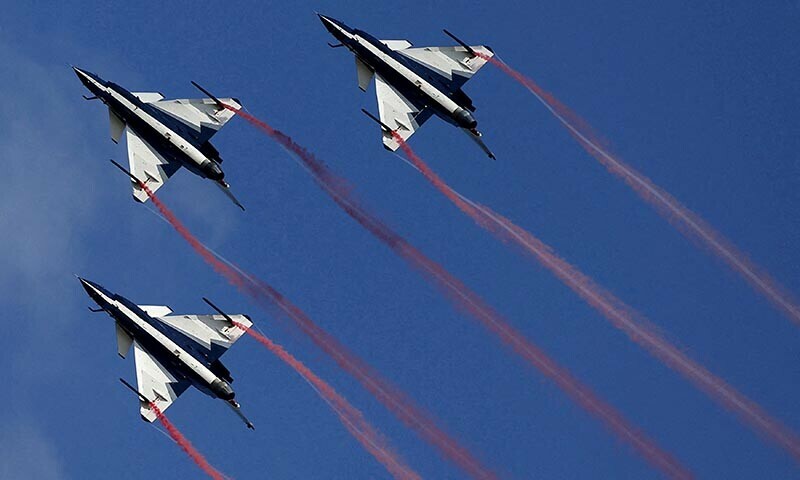MILITARY

As tensions flare between India and Pakistan over the disputed Kashmir region, China is seizing the opportunity to gather valuable military intelligence—potentially gaining strategic advantage in its own rivalry with India.
Security experts and diplomats reveal that China’s military modernization, including a vast satellite network and increasing maritime presence, enables it to monitor the unfolding situation in real-time. Beijing’s long-standing military and strategic partnership with Pakistan further enhances its access to sensitive data, especially with Chinese-made J-10 fighter jets reportedly being used in the aerial confrontation.
Two U.S. officials claim that Pakistan's J-10 jets—supplied by China—shot down at least two Indian aircraft, one of which was a French-made Rafale. While India has denied losing any planes, Pakistan’s defense officials have confirmed the use of J-10s, withholding specifics about the weaponry deployed.
The clash presents a rare live-combat scenario for militaries worldwide to assess the effectiveness of aircraft, pilot training, and missile technologies. For China, it’s also a window into Indian defense protocols and potential vulnerabilities.
“From an intelligence perspective, this is a rare target of opportunity right on China’s borders involving a key potential adversary,” said Alexander Neill, a Singapore-based security analyst.
China’s ability to extract intelligence from this conflict is bolstered by its advanced reconnaissance infrastructure. The International Institute for Strategic Studies (IISS) reports that China operates 267 satellites—115 for surveillance and 81 for military signal interception—far surpassing the capabilities of regional rivals like India.
China’s sea-based intelligence operations are also expanding. In recent weeks, open-source analysts reported over 220 Chinese fishing vessels maneuvering in unison near Indian naval exercises in the Arabian Sea—possibly doubling as intelligence-gathering units. These fleets often act as maritime militias, tracking and reporting strategic data to China’s military apparatus.
The strategic cooperation between China and Pakistan provides another channel for intelligence sharing. Analysts believe Chinese military advisers embedded within Pakistan can access critical data on Indian deployments, particularly involving air defense systems and missiles like the BrahMos—India’s jointly developed supersonic cruise missile with Russia.
Though official responses remain limited, India’s envoy in the UK, Vikram Doraiswami, downplayed concerns over the China-Pakistan axis, stating, “China requires a relationship with all of its neighbours, that includes us.”
Nonetheless, analysts argue that Beijing is well-positioned to extract military insights and tactical knowledge from this latest flashpoint between two nuclear-armed rivals. With regional stability at stake, the China-Pakistan intelligence nexus may quietly shape future military equations in South Asia.




